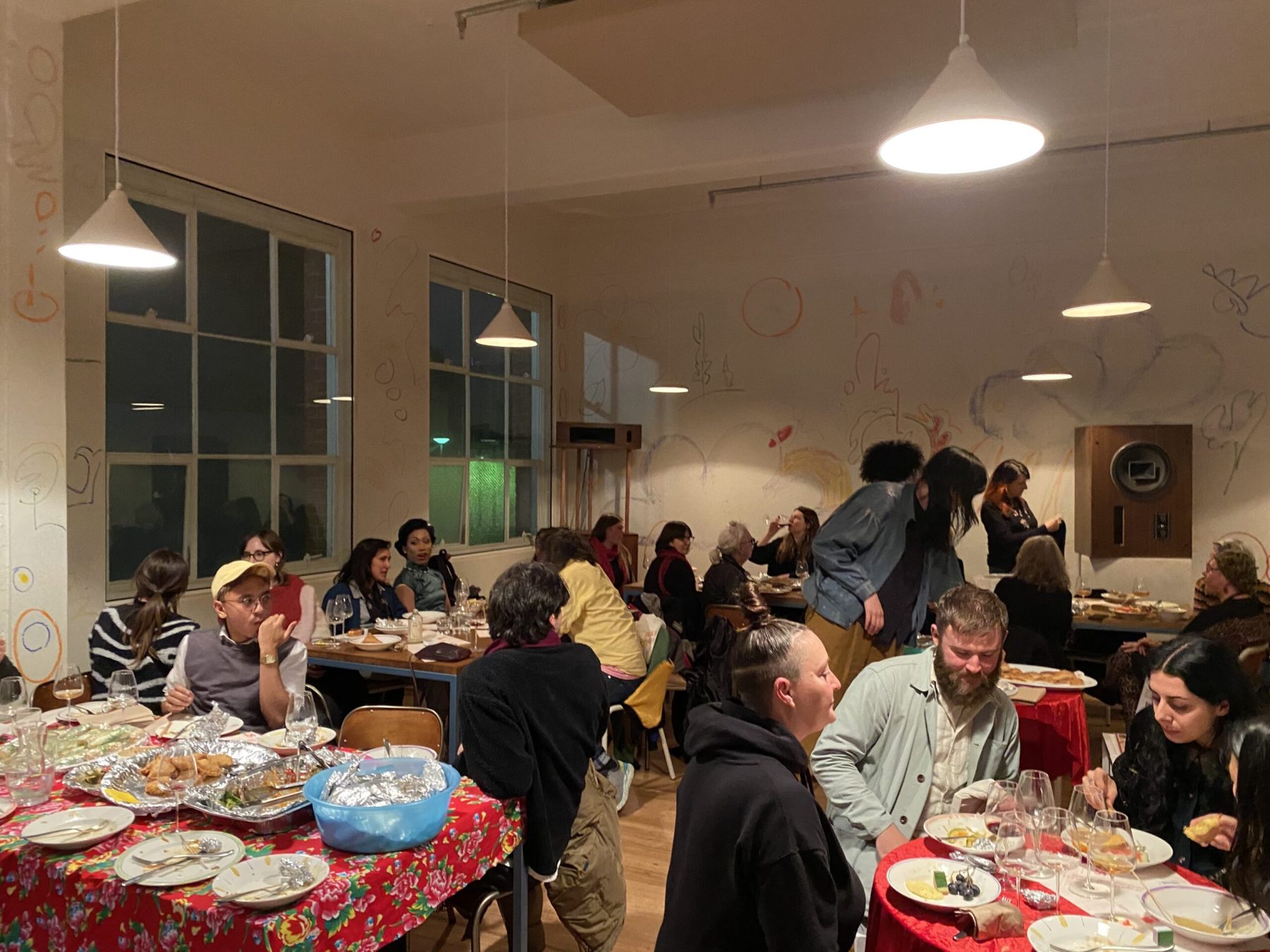Disorganising: Metabolisms
Food Art Research Network x School of Instituting Otherwise produced a series of conversations with artist and community led food economies projects. We hosted an online workshop that explored some of the questions that the artists raised. The project was hosted by Disorganising (Bus, LA, WestSpace), Naarm (Melbourne)

Disorganising, is a project between Melbourne based artist led initiatives (ARI’s) West Space, Liquid Architecture and Bus Projects; an open and expanding conversation that looks to experiment with divergent ways of organising and creating.As part of Disorganising’s focus on alternative economic models in the arts we were asked by the producers to map some examples of artists that are creating long term artist-led infrastructures that address environmental and economic urgencies. We wanted to find out about how artists care for each other and the earth and learn more about practices that challenge art world hierarchies and invent new modes of circulation. We asked what are the creative, gathering, governing and methodological practices that nurture shifts away from capitalist production and that care for the more than human biosphere we share.
We spoke with Mariana Martinez Balvanera one of the founders of Cocina CoLaboratorio who meet across tables to consider spaces of biocultural diversity in Mexico and Malini Kochupillai founder of Tenacious Bee Collective based in Himachal Pradesh, India. We spoke with Ira Barker (Gunditjmara and Barkindji) who works with indigenous growers Murnong Mummas on Djadja Wurrung Country and Kathrin Böhm founder of Company Drinks, a foraged drinks company in Barking and Dagenham in the east end of London. They each bring scientists, researchers, artists and community together to restore and care for local and indigenous foodscapes while sensitively creating ways of working that move beyond capitalist forms of extraction and experiment with ways to create sustainable economies beyond current economic paradigms. We are hugely thankful to those that have taken part in these conversations.
-
Company Drinks Conversation (you tube)
This conversation with Kathrin Böhm—part of the team that run Company Drinks in Barking and Dagenham, UK—explores their community led drinks company. Kathrin Böhm is part of myvillages, she facilitates Centre for Plausible Economies and brings artists and rural knowledges into dialogue.
-
Murnong Mummas Conversation (YouTube)
This conversation with Ira Barker who is about their work with the amazing team that run Murnong Mummas on Dja Dja Wurrung Country in Central Victoria. An indigenous led catering and native plant growing local enterprise.
-
Cocina Colaboratorio Conversation (YouTube)
This conversation is with Mariana Martinez Balvanera who is part of the team that run Cocina CoLaboratorio in Mexico who bring scientists, researchers, artists and community together to share knowledge over a kitchen table.
-
Tenacious Bee Collective Conversation (YouTube)
This conversation is with Malini Kochupllai who is part of the team that run Tenacious Bee Collective, located in Himachal Pradesh, India who bring scientists, researchers, artists and community together to restore and care for indigenous bee keeping practices.